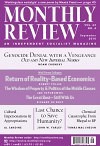Yugoslavia

Miroslav Krleža was a giant of Yugoslav literature, yet remarkably little of his writing has appeared in English. In a body of work that spans more than five dozen books, including novels, short stories, plays, poetry, and essays, Krleža steadfastly pursued a radical humanism and artistic integrity. Harbors Rich in Ships gives English-speaking readers an unprecedented opportunity to appreciate the astonishing breadth of Krleža’s literary creations. Beautifully translated by Željko Cipriš, this collection of seven representative early texts introduces a new audience to three stories from Krleža’s renowned antimilitarist book, The Croatian God Mars; an autobiographical sketch; a one-act play; a story from his collection of short stories, One Thousand and One Deaths; and his signature drama, The Glembays, a satirical account of the crime-ridden origins of one of Zageb’s most aristocratic families. | more…

During the period stretching from the 1970s through the 1990s, Monthly Review, under the editorship of Harry Magdoff and Paul Sweezy, stood apart in its analysis of the tendency to economic stagnation in advanced capitalism and its view that the economic slowdown beginning in the 1970s was a manifestation of this secular tendency. The financial explosion that also emerged in these years was seen as an attempt by the system to stave off stagnation by means of credit-debt expansion, but at the cost of increasing financial fragility | more…
A Study in Inhumanitarian Intervention (and a Western Liberal-Left Intellectual and Moral Collapse)
The breakup of Yugoslavia provided the fodder for what may have been the most misrepresented series of major events over the past twenty years. The journalistic and historical narratives that were imposed upon these wars have systematically distorted their nature, and were deeply prejudicial, downplaying the external factors that drove Yugoslavia’s breakup while selectively exaggerating and misrepresenting the internal factors. Perhaps no civil wars—and Yugoslavia suffered multiple civil wars across several theaters, at least two of which remain unresolved—have ever been harvested as cynically by foreign powers to establish legal precedents and new categories of international duties and norms. Nor have any other civil wars been turned into such a proving ground for the related notions of “humanitarian intervention” and the “right [or responsibility] to protect.” Yugoslavia’s conflicts were not so much mediated by foreign powers as they were inflamed and exploited by them to advance policy goals. The result was a tsunami of lies and misrepresentations in whose wake the world is still reeling. | more…
Jump to Part: I, III, IV | Glossary | Timeline
3. The UN in NATO’s Service
A striking feature of U.S. policy since the collapse of the Soviet deterrent is the frequency with which it relies on the Security Council and the Secretariat for its execution—before the fact when it can (Iraq 1990–91), but after the fact when it must (as in the cases of postwar Kosovo and post-invasion Afghanistan and Iraq). Even though the Security Council never authorized these last three major U.S. aggressions, in each case the United States secured degrees of council assent and ex post
Jump to Part: I, II, IV | Glossary | Timeline
7. The Milosevic Trial
The four-year trial of Slobodan Milosevic was the culmination of ICTY service to the NATO program in the Balkans. It was designed to show the world by an elaborate procedure leading ultimately to the conviction of the top Serb leader—the first head of state in modern times to be indicted, seized, and tried in this fashion—that the “judgment and opprobrium of history awaits the people in whose name their crimes were committed,” as Secretary of State Lawrence Eagleburger said in 1992. As
Jump to Part: I, II, III | Glossary | Timeline
10. The Role of the Media and Intellectuals in the Dismantlement
Media coverage of the Yugoslav wars ranks among the classic cases in which early demonization as well as an underlying strong political interest led quickly to closure, with a developing narrative of good and evil participants and a crescendo of propaganda steadily reinforcing the good-evil perspective. This was the case after the shooting of Pope John Paul II in Rome in 1981, where dubious evidence of Bulgarian-KGB involvement was quickly accepted by the New York Times and its
Glossary and Timeline for “The Dismantling of Yugoslavia”. | more…

